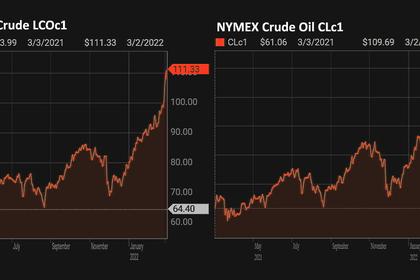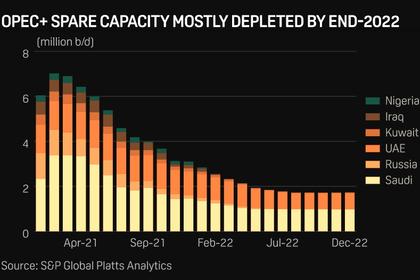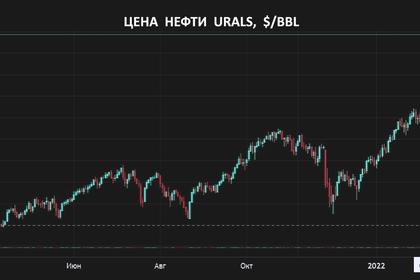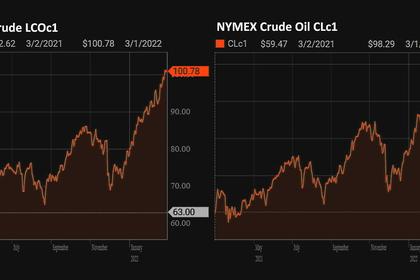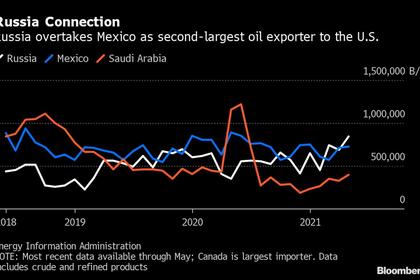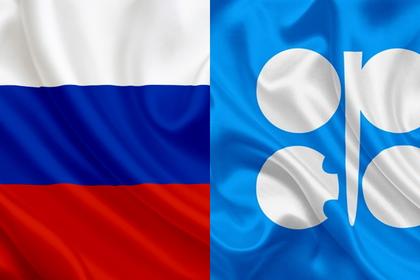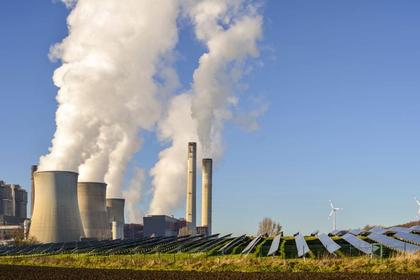
OIL PRICE: NEAR $115
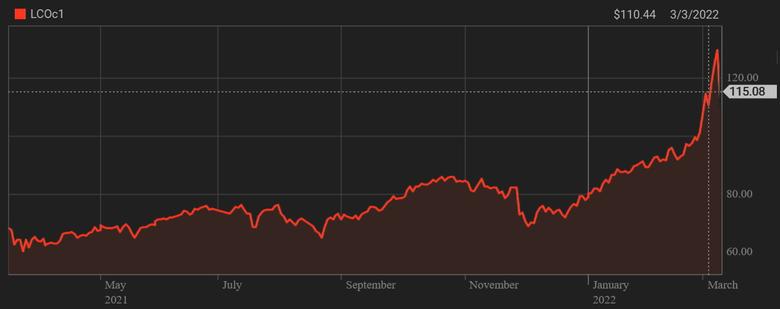
REUTERS - March 3 - Benchmark Brent crude oil prices climbed close to $120 a barrel on Thursday, with Russian oil exports disrupted as traders try to avoid becoming entangled in sanctions.
Support also came from U.S. crude stockpiles at multi-year lows, helping to lift Brent crude futures as high as $119.84 a barrel for the highest level since 2012.
By 1024 GMT the contract was up $2.18, or 1.9%, at $115.11 a barrel.
Brent has jumped by about 37% in the past 30 days and the contract's six-month spread hit a record high on Thursday at more than $21 a barrel, indicating very tight supplies.
U.S. West Texas Intermediate crude hit a high of $116.57, its loftiest since 2008, before retreating a little to $113.12, up $2.52 or 2.3%.
The gains followed a fresh round of U.S. sanctions that target Russia's oil refining sector, raising concerns that Russian oil and gas exports could be targeted next.
Russia competes with Saudi Arabia for the title of biggest crude oil and refined oil products exporter, with shipments of more than 7 million barrels per day (bpd), about half of which go to Europe.
While wielding economic sanctions to try to make Russia call off its invasion of Ukraine, Washington has so far stopped short of targeting Russia's oil and gas exports, weighing the impact on global oil markets and U.S. energy prices.
Still, traders held off Russian oil products anyway. At least 10 tankers failed to find buyers on Wednesday, market sources said.
"We expect that Russian oil exports will plunge by 1 million bpd from the indirect impact of sanctions and voluntary actions by companies," said Rystad Energy CEO Jarand Rystad.
"Oil prices are likely to continue to climb – potentially beyond $130 per barrel."
Australia's ANZ raised its short-term target for oil to $125 a barrel.
The Organization of the Petroleum Exporting Countries (OPEC) and allies including Russia, collectively known as OPEC+, decided to maintain an increase in output by 400,000 bpd in March despite surging prices, snubbing calls from consumers for bigger increases.
"While some remain transfixed with the idea that an Iran agreement will provide much needed relief (from rising oil prices), we again caution that the deal is still not done and the sums entailed would simply be too small to backfill a major Russian disruption," RBC Capital analyst Helima Croft said in a note.
The head of the International Atomic Energy Agency (IAEA) will visit Tehran on Saturday, Iranian news agency Nournews reported, suggesting this could help pave the way to a revival of Iran's 2015 nuclear agreement with major powers.
Meanwhile, U.S. oil inventories continued to decline. Tanks at the key Cushing crude hub in Oklahoma were at their lowest since 2018, while U.S. strategic reserves dropped to their lowest in nearly 20 years.
-----
Earlier:
